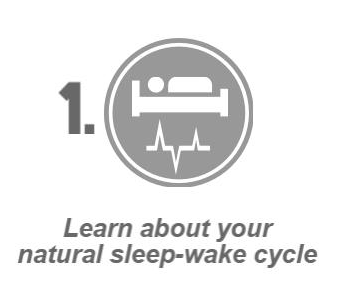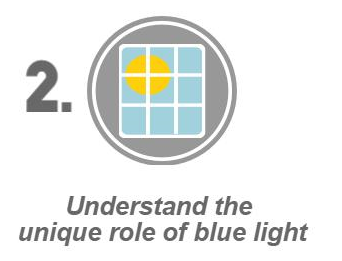Go to your Frontpage page and add a product to your collection.

As featured on:


Your natural sleep-wake cycle or circadian rhythm is a finely tuned mechanism.
It has evolved over millions of years and controls many important processes in your body. It helps you anticipate regular environmental patterns such as day and night and how to best prepare for them.
This 'body clock' is constantly adjusting itself to align internal workings with the external environment based on cues such as light and temperature.


Since the early 20th century, scientists have known that light plays a major role in your circadian rhythm.
Before the industrial revolution, the primary source of light was the sun.
However, in the past 100 years with the proliferation of artificial lighting and light emitting devices, it is arguable that the sun no longer our primary light source. We now have bright LED lights, phones, laptops and tablets that emit light at all hours of the day.
Increasingly, scientists think this is a problem. Because our eyes do not differentiate between artificial and sun light, exposure to electronic light at night results in a similar circadian response as exposure to sun light.
Study after study, such as this article in the Harvard Medical Journal, shows that exposure to electronic light late at night has adverse impacts on your sleep.
However, not all frequencies of light affect your body in the same way. Light in the blue portion of the visual spectrum results in the most circadian disruption. From the study:
Harvard researchers and their colleagues conducted an experiment comparing the effects of 6.5 hours of exposure to blue light to exposure to green light of comparable brightness. The blue light suppressed melatonin for about twice as long as the green light and shifted circadian rhythms by twice as much (3 hours vs. 1.5 hours).
Suppression of melatonin at night is a problem. Melatonin is known as the 'sleep hormone' and is released in the evening in the absence of light, as you prepare for sleep.
A delay in the release of melatonin means it could shift your circadian phase later into the night i.e. you fall asleep later and wake up later. This could be a problem if you need to wake up at a set time for school or work.
Over a long term - studies have shown that exposure to night time light (for example from shift workers) results in increased incidences of cancer, diabetes, heart diseases and obesity.

Ideally, we would all turn off our devices, and reduce our artificial light exposure after sunset.
But in the modern household this is rarely possible. We have errands to run, emails to check and shows to catch up on. A study conducted by the National Sleep Foundation found that over 85% of parents and 79% of children have at least 1 electronic device in their bedrooms.
There is now a novel way to help mitigate the impact of exposure to blue light : Blue Block Glasses. The same Harvard study recommends "if you work a night shift or use a lot of electronic devices at night, consider wearing blue light blocking glasses".

